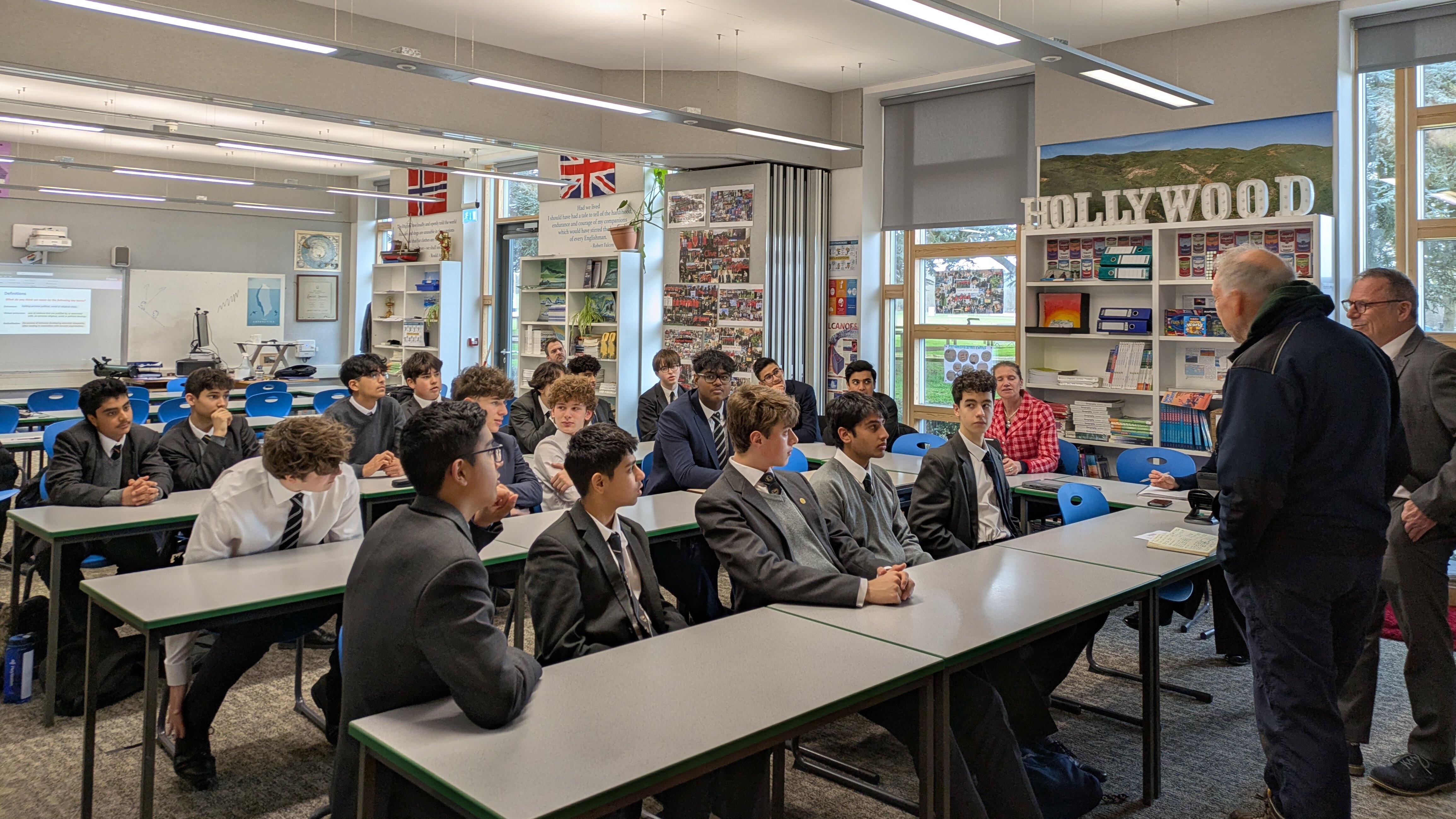Sixth Form Geographers Consider School Sustainability

On Tuesday, Mr. Ayling and Mr. Harratt presented a very interesting talk to Geography pupils on the significance of sustainability in water and energy consumption at Merchant Taylors' School.
Writes Xander Z-S, L6th
The talk outlined the major legislative measures adopted by the government to mitigate carbon emissions, with particular reference to the Streamlined Energy and Carbon Reporting (SECR) policy, which requires entities to report their energy consumption and carbon footprint in their annual reports.
The school uses large quantities of gas and electricity annually, which makes the reduction of our impact on the environment a fundamental priority. Much has been done and is in planning to help achieve this. Progress has already been made with the installation of solar panels on the sports hall and the preparatory school, which now provide energy to essential grounds upkeep equipment, golf buggies, and hedge trimmers, though more are to be installed for long-term sustainability of the school. A key issue we face in the pursuit of this endeavour is the insulation of the older buildings. For example, the Great Hall is a Grade II listed building, which limits what can be modified. It was highlighted however that, small behaviour changes, such as closing windows and turning off lights, can be made to limit energy wastage, helping to reach the school’s sustainability goals in regards to energy. Furthermore, the management team have replaced conventional lighting with LED lights, which are far more energy efficient, and this can be seen as a great leap toward a sustainable future.
Another challenge faced is the sourcing of water, enhanced by the fact that the United Kingdom is suffering from more extreme weather patterns, with alternating periods of drought and intense rainfall. The watering of sports pitches involves a high-water consumption, thus making it more challenging to source water sustainably. Surprisingly, there are no natural water resources that are easily accessible to us, as the Environment Agency controls the quantity of water that can be taken from the River Colne and surrounding lakes on site, necessitating the need to seek alternative options. Work has been done to locate potential alternatives already. The school has been considering various methods of reducing its reliance on municipal water supplies, including the possible construction of a reservoir near the cricket pavilion for the purpose of controlling and storing its own water. A range of highly innovative methods under consideration include the use of boreholes, aquifer storage, and harvesting rainwater that collects on the rooves of the buildings. These efforts are expected to allow Merchant Taylors' School to operate sustainably while maintaining its high standards of education and facilities.
Overall, the presentation was very engaging and insightful, highlighting how sustainability is a key priority for the school going forwards.